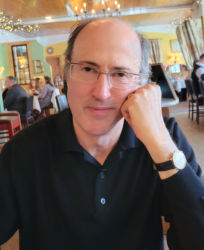Recently, we wrote about the cash-flow and profitability benefits of lowering your inventory levels (March, 2010, Merchandising Insights; "Inventory: The Blob that Ate Your Checkbook", page 82). Now, new research reveals that shoppers with fewer choices buy more stuff. Columbia Business School professor Sheena Iyengar stumbled on this insight while studying what motivates three-year-olds.
In the study, Ms. Iyengar thought that giving kids lots of toys to choose from would make them happier. But when she forced the kids to choose and play with just one toy, they played much more enthusiastically than when they could pick and play with many toys. The results were the same when Ms. Iyengar repeated the experiment giving kids even more and fancier toys to choose.
Intrigued, Ms. Iyengar set up another study limiting choice to see if adults would prefer fewer options. Using a Palo Alto, CA supermarket known for its extremely large selection, Ms. Iyengar set up two sampling booths offering tastes of unusual preserves. One booth offered 24 jams, the other just six.
You might think that, offered greater choice, shoppers would be more likely to find a flavor they liked and buy a jar. But the opposite was true. People tried more samples and bought much more jam at the booth with six varieties. Folks who stopped at the 24-jam booth didn’t say, “Please take away some of these options so I can decide more easily.” They just felt overwhelmed.
So, if you believe you need to offer your customers a dozen multivitamins, think again. Shoppers—particularly natural products shoppers who depend on you to educate them—trust you to suggest the best-tasting, most effective products. When you limit choice, you’ll get the benefit of greater cash flow from lower inventory and higher sales. WF
Jay Jacobowitz is president and founder of Retail Insights®, a professional consulting service for natural products retailers established in 1998, and creator of Natural Insights for Well Being®, a holistic consumer marketing service designed especially for independent natural products retailers. With 33 years of wholesale and retail industry experience, Jay has assisted in developing over 900 successful natural products retail stores in the U.S. and abroad. Jay is a popular author, educator, and speaker, and is the merchandising editor of WholeFoods Magazine, for which he writes Merchandising Insights and Tip of the Month. Jay also serves the Natural Products Association in several capacities. Jay is next scheduled to moderate a panel on “Retail Strategies for a New Decade” at Natural MarketPlace, Las Vegas, NV, on June 10 from 3:30 to 4:30 (room S233). He can be reached at (800)328-0855 or via e-mail at jay@retailinsights.com.
Published in WholeFoods Magazine, June 2010










